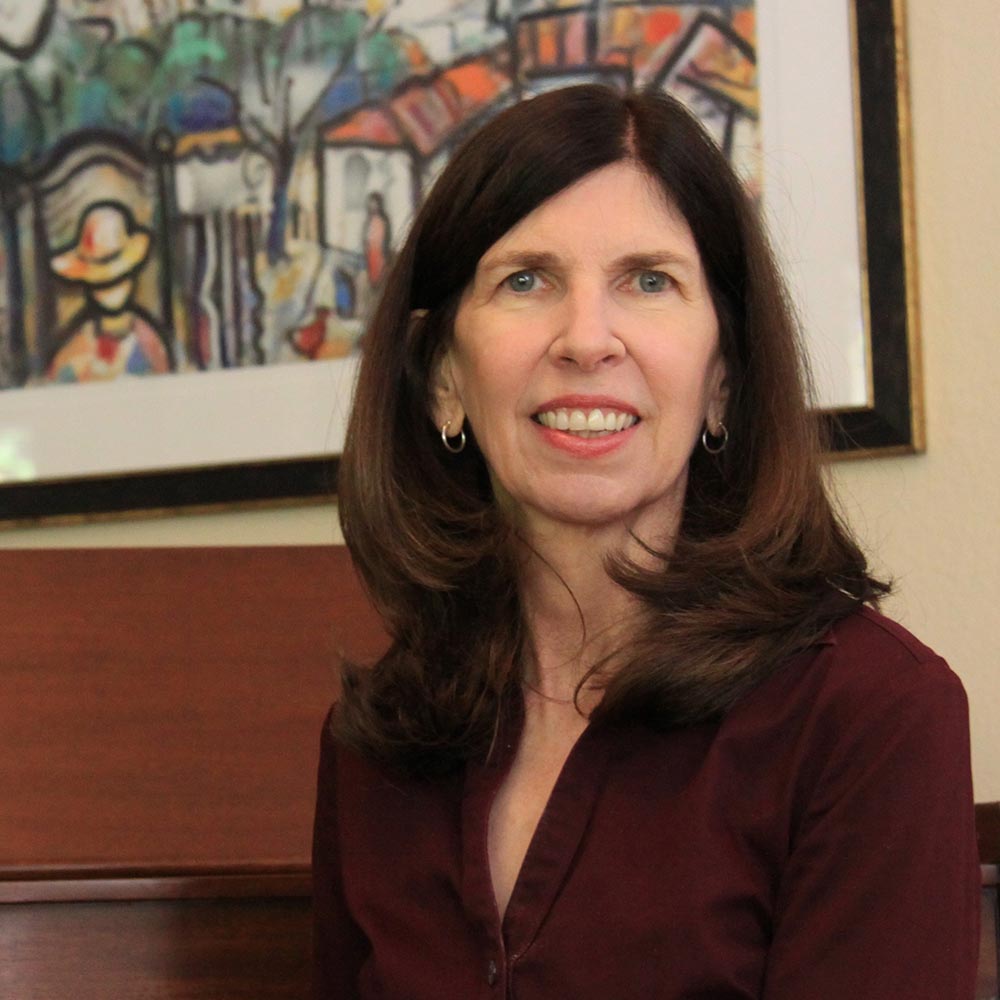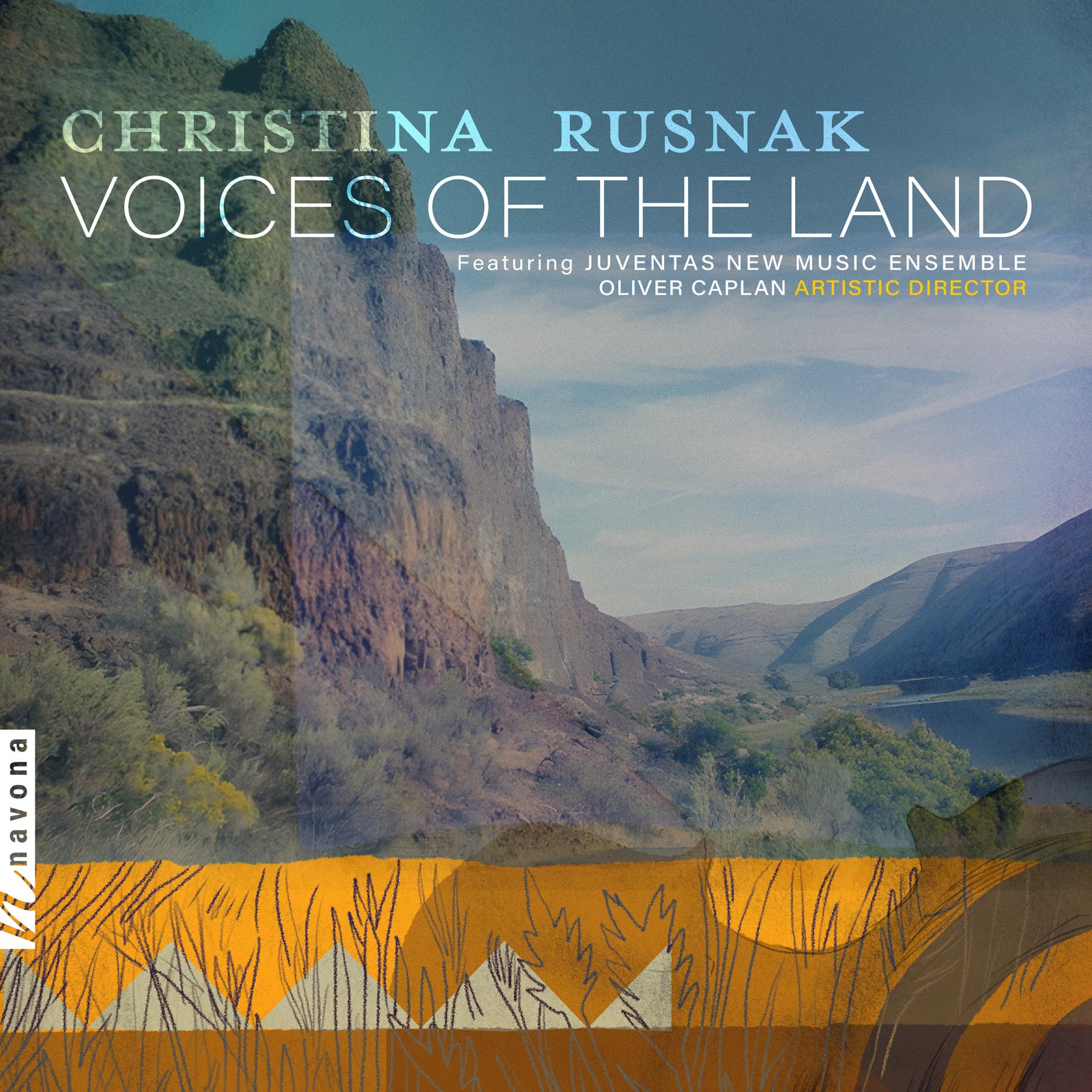
A powerful tribute to the land and the people who shaped it, VOICES OF THE LAND invites listeners to reflect on the complex history of America. The pieces on this album explore the emotions and experiences of settlers, miners, and indigenous people as they navigated the challenges, triumphs, and indignities of early American history.
Today, Christina is our featured artist in “The Inside Story,” a blog series exploring the inner workings and personalities of our composers and performers. Read on to learn how she ultimately followed her calling towards composition and see what inspires her work today…
If you weren’t a composer, what would you be doing?
This is a complex question because what we do is not necessarily who we are. For many, even music is an occupation that can be interchanged with another occupation. I’ve been composing since I was 9 years old, so I tend to think that composing picked me, rather than the other way around. Yet I finished my bachelors with a business degree and rose the corporate ladder. Composing knocked hard in my 30’s beckoning me to return to my true vocation. In graduate school, in the midst of pursuing my composition degree, I discovered the science of cultural geography, and I think I would have made a great cultural geographer, so perhaps that’s the answer?
By nature, I’m an explorer, a traveler, and that informs all of my endeavors including composing. I have taken all of the aspects of who I am to create a life that embodies the intersection of place, nature, culture, history, and art to integrate context into my music from the world around me to convey something meaningful about the human experience.
What advice would you give to your younger self if given the chance?
Believe in yourself. Work to hone your craft, even if those around you think that no one will ever care about your music.
Take us on a walk through your musical library. What record gets the most plays?
The most played piece is undeniably Kyripo, a piano short piece on my first Navona Records release, SLICES. It is also the most performed – more in Europe than in the United States. I really enjoy my Jazz works from CHAT, CHILL, HIGHLINE, and wish these would get more airplay. The same goes for my choral works, especially Liberty’s Light, which addresses immigration. From the new VOICES OF THE LAND album, the performance of Free Land completely stirs my heart.
What emotions do you hope listeners will experience after hearing your work?
My assertion with each piece on VOICES OF THE LAND is that every landscape embodies multiple voices, multiple perspectives. The historic arc of the album is important. Each piece is different and will elicit unique responses and emotions in each individual. In a few pieces, I have leaned into the historical style of the music portrayed and realize some will embrace it and others won’t. Overall, I hope people come away with questions after listening to the album. I hope their emotions are thoughtful, empathetic, and inspiring.
What was the most impactful musical experience as a composer?
In 2014, I was commissioned by the U.S. Forest Service to compose a piece to celebrate the 50th Anniversary of the Wilderness Act. I composed a short trio about Mount Adams Wilderness in Washington. After the six-minute performance, the musicians and I prepared a talk to demonstrate how the actual landscape informed my composing. Forty-five minutes later, a woman stated that this experience changed how she would think of the wilderness going forward. I thought the forest ranger was going to cry. I almost cried.
What’s the greatest performance you’ve ever seen, and what made it special?
So many performances are great and have impacted me, I can’t pick just one. The best performance I’ve attended recently was Omar Thomas’ Come Sunday, performed by the Florida A&M University Wind Symphony at the CBDNA National Conference in Athens GA in February 2023. What made it special was that the conductors and performers embraced it and made it their own, and in doing so, they conveyed joy and an energy that was contagious to everyone in attendance.
How have your influences changed as you grow as a composer?
We are in the best of times. Like most, as a child and in college I was influenced by the works I was studying and what I heard at home. I was frustrated that, in 2010, our collegiate studies of “important musical works” stopped about 1980. Today, I listen across the board – I am most influenced by the music my contemporaries are writing NOW. I have an evolving list of pieces composed primarily in the last 10 years. Never before have we been able to experience the diversity of amazing music by so many living composers.

Inspired by concepts of place and the human experience, composer Christina Rusnak works at the intersection of nature, culture, history, landscape, and art to integrate context into her music from the world around her. Rusnak composes for diverse instrumentations with lyrical lines, and organic rhythms and textures. Her pieces range from elementary to professional levels and includes chamber ensemble, orchestra, wind band, choral and solo works, as well as flex band pieces, jazz, electro-acoustic works, and film.

